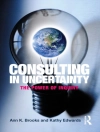How do people cope with stressful experiences? What makes a coping strategy effective for a particular individual? This volume comprehensively examines the nature of psychosocial stress and the implications of different coping strategies for adaptation and health across the lifespan. Carolyn M. Aldwin synthesizes a vast body of knowledge within a conceptual framework that emphasizes the transactions between mind and body and between persons and environments. She analyzes different kinds of stressors and their psychological and physiological effects, both negative and positive. Ways in which coping is influenced by personality, relationships, situational factors, and culture are explored. The book also provides a methodological primer for stress and coping research, critically reviewing available measures and data analysis techniques.
表中的内容
1. Introduction and Purpose of the Book
2. Why Is Stress Important?
3. Definitions of Stress
4. The Physiology of Stress
5. Design and Measurement Issues in Stress Research
6. Why is Coping Important?
7. Theoretical Approaches to Coping
8. Measurement of Coping Strategies
9. Statistical Issues in Coping Research
10. Coping and Mental Health
11. Coping and Physical Health
12. Coping with Traumatic Stress
13. Sociocultural Aspects of Coping
14. Developmental Studies of Coping
15. Stress-Related Growth and Transformational Coping
16. Self-Regulation, Self-Development, and Wisdom
关于作者
Carolyn M. Aldwin, Ph D, is Professor in the Department of Human Development and Family Sciences at Oregon State University. She received her doctorate from the University of California, San Francisco, in 1982, and was a National Institute of Mental Health postdoctoral scholar in Human Development, Environmental Demands, and Health at the University of California, Irvine. Dr. Aldwin received a FIRST award from the National Institute on Aging for her study of psychosocial factors and health in aging early in her career at the Boston Veterans Administration, and has published over 90 articles and chapters in this area. She is a fellow of both Divisions 20 (Adult Development and Aging) and 38 (Health Psychology) of the American Psychological Association, as well as of the Gerontological Society of America.












